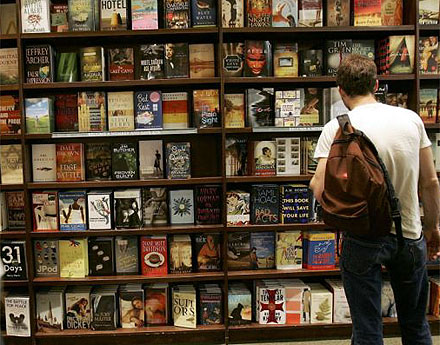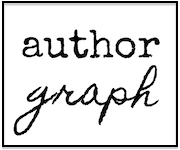I ran across a comment on an agent’s blog the other day, in response to a post about how writers feel when they see bad books getting published. It went something like this:
 I used to get frustrated and resentful when I didn’t get a bite for my own much better books. But I finally accepted that, the majority of people, all through history, have preferred inferior entertainment to genuine art. Genuine art challenges you, and a lot of people don’t like to be challenged; they just want to be titillated.
I used to get frustrated and resentful when I didn’t get a bite for my own much better books. But I finally accepted that, the majority of people, all through history, have preferred inferior entertainment to genuine art. Genuine art challenges you, and a lot of people don’t like to be challenged; they just want to be titillated.
So now I accept that I’m not writing for the masses. I don’t need to care about what they like. There are enough people like me to give my books a modest but discerning audience.
It also encourages me to remember that once in a while, a truly fantastic book becomes a bestseller. So the masses do have some sense, after all.
I just want to say, for the record, statements like the above really chap my ass. Oh, let me count the ways:
1.) “Good” and “better” are subjective terms. Do we mean profound subject matter? Elegant prose? Creative approach to storytelling or the craft of writing? Is a book only “good” if it makes us laugh? Cry? Think? Wakes us up to a social ill that needs to be acknowledged?
What if we just want to take a break from the stresses of daily life, the horrors on the nightly news, and the tragedies in our own lives and just read something purely for entertainment? Is this no longer “good?”
Let me tell you, I’ve read some of the “best” books in both the classics and modern times and came away ready to slit my wrists. Is A Thousand Splendid Suns “better” than Sanderson’s Way of Kings because the first was monumentally depressing, though well written and on the topic of suffering we know is genuinely occurring, while the second was well written, fascinating, but pure fantasy?
Why?
Which plays right into:
2.) Don’t want to be challenged? Well, actually, I’m not going to apologize for wanting my entertainment to be… entertaining.
3.) The contempt for the audience, the sheer arrogance of proclaiming the STILL READING public to be little more than a mindless mass is just… well, it’s just something not very nice that I’m not going to say.
But if I knew an author felt that way, I wouldn’t read his or her book, I don’t care if it was the Bible. Shoot, even God has a little humility.
4.) Who holds the copyright on the definition of “genuine art?” I mean, really. Some of what is called “art” I call crap. And sometimes crap (literally) is called art. I’m glad you think your book is “genuine art” but, quite frankly, there’s no universal truth that is “genuine art.” Sorry.
Don’t get me wrong, I think my book is great. I think it’s good writing, and I think it addresses issues that are pertinent to our times and our social consciousness. I think it’s more than “titillating” and that it wouldn’t kill a “discerning audience.”
And it has spaceships.
Quick! Call the Genuine Art police.
/rant













Great post! Art is truly subjective and a statement like you quoted above is quite arrogant. I personally write for a selfish reason—to entertain myself. And I just hope that by entertaining myself, I can entertain others too, even if it is only a handful of people.
B.C. Young recently posted..Explanation Vs Interpretation
First of all spaceships are awesome
Second of all the original poster sounds like a pretentious ass
B.C., that’s so true, I started writing because I was enjoying the story. Having fun and expanding the mind aren’t mutually exclusive concepts. There are plenty of times the two come bundled together. And sometimes they don’t and that’s OK too. But imagine if we never did anything JUST for fun.
Pavarti, 😀 Yeah. Pretty much sums up my several paragraphs. 😉
Leah Petersen recently posted..5MinuteFiction Week 50 WINNER!
I just bought Chelsea Handlers new book. I guess that makes me part of the mindless masses. lol Can’t wait to read about the spaceships. Good post.
Ok, I loved your rant. While there are published books that I think are poorly written they had to have done something right to get there. The most authors can do is tell the story they have to, do it the best they can, and hope that someone feels about it the way they do. There is no use in denigrating other authors.
S.P. Bowers recently posted..Pretty- Shiny
This is GOOD. There seems to be a huge disconnect with some writers. Like they live on some far away planet where only flawless high lit fiction can possibly survive, and everything else is only equal to or less than rag magazines. Why is it they are always SO GOOD people don’t want to read their work?
Reality check people.
A couple of days ago, I tried to explain to someone that the public has decided what they are willing to overlook for the sake of a good story. If you are an editor, things that annoy you don’t bother the average reader. Do you think non writer/readers really care if the dialogue punctuation is wrong, or if you occassionally misuse a comma? The answer is no, people want to be entertained. Rarely do I read books for the lit experience, I read books because they all so something for me.
I hate people… not all people… just lots of them 😉
Angela recently posted..So- what about that grand prize
Hi Leah: couldn’t agree with you more. Whoever wrote that comment was jealous, petty and, as you said, contemptuous in his/her little rant.
I had something similar, when I had my family theater group. We were part of the Arts Council, and I went to a meeting of new roster artist. After an almost two hour session of what the Arts Council could do for us, grants and all that, the PRESIDENT of the Arts Council came and said “oh..and only serious artists will be considered.” Another performer and I looked at each other (we had already bonded, as everyone else at the meeting was in Fine Arts or Music). We spoke up, and were basically again told that the SERIOUS art (pointing to a sculptor) would benefit.
Dismissive attitudes like hers and the one above are ONE reason the arts are so easily attacked, and I’m including writers in this as well. Writing is writing, and a published piece of work either sells or it doesn’t. Someone likes it, another doesn’t.
High Horse People need to depart.
I hate Dickens. I like J.K. Rowlins. I like Hemmingway, I can’t stand Stephanie Meyers. So what. If you think it’s important to write what you consider art for the sake of art, that’s cool and if you want to write a fart joke book that’s cool too both are literature and worthy in their own Genre. I have read books of fart jokes and I have read Homer (no not Simpson, the other one, the Greek Dude) and enjoyed both. Readers are readers, stop alienating any of them.
The Greek dude. Heh.
I’m so glad to see that so many of the writers I know aren’t the sort of pretentious twat that would write a comment like that. 😉
Leah Petersen recently posted..No- Mom- I’m Not Looking at Internet Porn- or The Perils of Social Media
I love gourmet cheesecake, but I crave York peppermint patties. Sure, they are mass produced, and loved by millions of people, but they are GOOD! Sometimes I want to spend $9.50 on one single slice of dessert, but I’m just as likely to go home and munch on my favorite, not because it’s cheap, but because it satisfies me. I want it. I choose the cheap candy as often as I choose the gourmet.
I treat television the same way (but don’t get me started about GOOD shows getting cancelled after just one season!) I have often decided NOT to watch something artsy or thought provoking because I just spent my whole day being provoked and I just want something entertaining.
I enjoy museums and art, and I recognize and appreciate all kinds of crafty or even silly media. But a rotten apple on a pedestal has also been labeled art, as have numerous offensive sights because the artist found it easier, or perhaps more personally titillating to produce an “EW!” reaction than to produce a more pleasant reaction.
Spaceships are great. So are dragons and robots and chickens and happily-ever-afters! Whether they are epic and thought provoking or simple and fulfilling, all it takes to be “good” is to be well written, and appreciated by its own audience no matter how small.
Amybeth,
I missed your comment when it came across earlier, but I love this:
“all it takes to be “good” is to be well written, and appreciated by its own audience no matter how small”
That’s it exactly. Great comment, I agree with every word.
Leah Petersen recently posted..5MinuteFiction Week 50 WINNER!